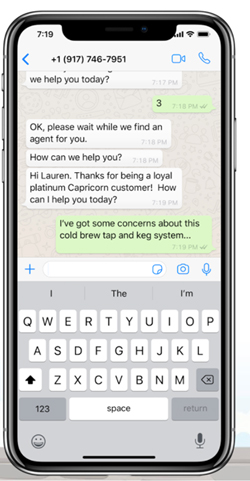Customer service centres are being flooded with queries from anxious customers enquiring about flight ticket refunds, extensions on bill payments, insurance coverage for COVID-19, and more. This has dramatically increased the pressure on customer service leaders who have to find a way to manage increased customer queries, despite fewer resources and a sudden shift to remote working models.
To help service teams deal with these shifts, Salesforce recently hosted a webinar, titled Restructure and Scale your Service Operations in Times of Uncertainty. Led by Nipun Sharma, Service Cloud Specialist at Salesforce, the webinar identified four key steps that customer service centres can take to adapt to these changes, with the help of Salesforce Customer 360:
1. Optimise service from home or anywhere
As customer service teams continue to work remotely, two factors are crucial. The first is ensuring that agents can access all the infrastructure and data that they normally use in their call centres. The second is empowering supervisors with the insights they need to prioritise cases efficiently, while also monitoring and coaching their teams from anywhere.
Salesforce can help on both counts. With Service Cloud, agents can access the same workspace and productivity tools that they would in a call centre, no matter where they log in from. All customers and cases can be handled from a single screen, thereby accelerating case resolution—in some cases by 33%.

Supervisors can use Salesforce to intelligently match cases to available agents with the right skill sets. The system automatically analyses incoming cases, and predicts case fields to save time. It also provides rich dashboards and analytics to track agent workload in real time, identify service issues instantly, and provide assistance remotely.
All of this means that no matter where teams are working, they can continue to serve customers just as effectively or even better than before.
2. Scale support across any channel
Customers today want an engaging and consistent support experience across channels. As your teams scale up to meet this demand, self-service models offer a great first line of defence. They empower your customers to find answers or resolve simple issues on their own, while also reducing the load on your agents.
With Salesforce, you can quickly set up a self-service customer portal, help centre, and community—sometimes in less than a week. Embedded knowledge articles can help customers troubleshoot issues themselves. And step-by-step process flows can guide them to quickly book an appointment, report a lost credit card, or perform other simple activities.
Meanwhile, Salesforce Einstein Bots can save your agents time by handling simple customer questions and repetitive tasks such as customer data collection before handing the case over to them. Also, with the omnichannel capabilities of Service Cloud, building a bot once and then deploying it across multiple channels, such as web, mobile or messaging does away with the need to deploy multiple bots across channels for the same business needs. This not only reduces overheads, but helps deliver a more consistent customer experience as well.

Cases can be pushed from any channel—such as messaging or social—to the right queue for efficient resolution. What’s more, agents can smoothly toggle between voice conversations, chat, SMS, and WhatsApp—all from a single console. This enables them to offer customers a seamless, omnichannel experience.
3. Empower service teams to build trust
During times of crisis, the need for swift case resolution only intensifies. More customers are calling, chatting, and texting for help. Offering them efficient and empathetic service will likely result in improved customer loyalty and brand reputation.
With Salesforce, you can deliver trusted experiences in the moments that matter. Agents can access a 360-degree view of customers and cases to provide well-informed and personalised service at scale.
A centralised knowledge repository makes it easy for teams to find answers to each customer question. Einstein Article Recommendations recommends relevant knowledge articles and Quip for Service enables agents to tap into the wisdom of their peers through collaborative documents and live team chat.
With Einstein Next Best Action, teams receive automatic recommendations on how to respond to a customer query, or when to cross-sell and upsell offers. Helping them maximise the impact of every customer interaction, and drive greater customer loyalty.

4. Build resilience with an agile platform
Customer services centres today are grappling with new types of cases and queries that have no existing playbooks. Now is the time to pivot and innovate – to rethink traditional solutions, and find new ways of building agility.
Salesforce can help your teams adapt quickly to specialised issues. Case layouts can be customised, and new support queues created to deal with new cases. Meanwhile, agents can be rapidly upskilled to respond to changing customer queries with the help of on-demand training from Trailhead, as well as contextual knowledge articles.
Teams can also drive innovation by using Salesforce’s intuitive building tools to create new workflows, apps, service portals, and chat bots with minimal code.
All these tools can help your teams stay resilient and responsive to customer needs during this time of unprecedented volatility.
Find out more
Watch the webinar: Restructure & Scale your Service Operations in Times of Uncertainty



